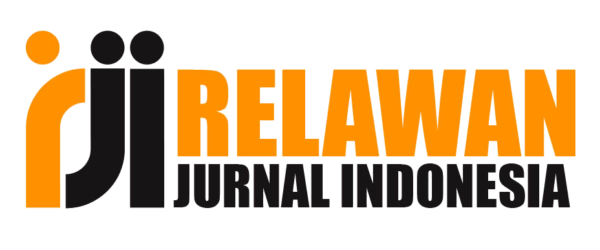SOCRATIC METHOD: METODE PEMBELAJARAN UNTUK MENINGKATKAN KETERAMPILAN BERARGUMENTASI
Abstract
Abstrak
Tujuan penelitian ini adalah menggambarkan penerapan Socratic Method dalam meningkatkan keterampilan berargumentasi mahasiswa calon guru IPA SD. Tahapan metode pembelajaran dalam penelitian ini terdiri dari empat tahap yang meliputi elicit, clarify, test, dan decide. Metode penelitian yang digunakan dalam penelitian ini adalah Quasy Experiment dengan desain Non-equivalent Control Group. Untuk mengetahui efektivitas perlakuan, kedua kelompok diberikan pretes dan postes masing-masing sebanyak satu kali. Hasil penelitian menunjukkan bahwa kedua kelompok memiliki perbedaan rata-rata antara pretes-postes yang signifikan untuk keterampilan berargumentasi berdasarkan uji Wilcoxon (sig < 0.05). Selain itu, perbedaan rata-rata postes-postes (eksperimen terhadap kontrol) juga signifikan berbeda beradasarkan uji Withney U (sig < 0.05). Sedangkan untuk efektivitas perlakukan kelompok eksperimen (0.68) lebih tinggi daripada kelompok kontrol (0.46). Secara keseluruhan, penerapan Socratic Method dapat meningkatkan keterampilan berargumentasi mahasiswa.
Kata Kunci: Socratic Method; Keterampilan berargumentasi
Abstract
The purpose of this research is to describe implementation of Socratic Method in increasing student’s argumentation skill of pre-service of primary science teacher. The learning syntax in this research consists of four stages namely elicit, clarify, test, and decide. The research method used in this research is Quasy Experiment with Non-equivalent Control Group Design. To know effectiveness of treatment, two groups are given one pretest and posttest. The result of the research shows that two groups have mean difference of pretest-posttest is significantly different for argumentation skill based on Wilcoxon test (sig < 0.05). In addition, the mean difference of posttest-posttest (experiment to control group) is also significantly different based on Withney U test (sig < 0.05). Meanwhile for effectiveness of treatment on experiment group (0.68) is higher than control group (0.46). Over all, implementation of Socratic Method can increase the student’s argumentation skill.
Keywords: Socratic Method; Argumentation Skill
Full Text:
PDF (Bahasa Indonesia)References
Bricker, L., & Bell, P. (2009). Conceptualizations of argumentation from science studies and the learning sciences and their implications for the practices of science education. Science Education, 92, 473-498.
Cho, K., & Jonassen, D. (2002). The Effect of Argumentation Scaffolds on Argumentation and Problem Solving. ETR&D, 5-22.
Anderson, L.W & Kratwohl, D.R. (2001). A taxonomy for Learning Teaching and Assesing: A Revision of Bloom’s taxonomy of Educational Objectives. New York: Longman.
Lam, F. (2011). The Socratic Method as an Approach to Learning and Its Benefits. Thesis (unpublished). Carnegie Mellon University
Fraenkel, Jack R dan Wallen. (2008). How to Desain and Evaluate research in Education. New york: Mc Graw-Hill International Edition.
Erduran, S., Simon, S., & Osborne, J. (2004). Tapping into Argumentation: Development in the Application of Toulmin's Argumentation Pattern for Studying Science Discourse. Science Education.
Hake, R.R. (1999). Interactive-engagement vs traditional methods: A six thousand student survey of mechanic test data for introductory physics courses. Journal of Physics. 66 (1): 64-74.
DOI: https://doi.org/10.17509/wapfi.v3i1.10931
Refbacks
- There are currently no refbacks.
Copyright (c) 2018 Wahana Pendidikan Fisika
The Journal Wahana Pendidikan Fisika http://ejournal.upi.edu/index.php/WapFi/ is licensed under a Creative Commons Attribution-ShareAlike 4.0 International License
The Journal WaPFi (Wahana Pendidikan Fisika).
All rights reserverd. pISSN 2338-1027 eISSN 2685-4414
Copyright © Faculty of Mathematics and Science Education (FPMIPA) Universitas Pendidikan Indonesia (UPI)










